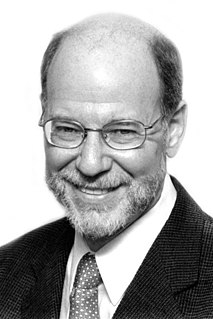A Quote by Carl Sagan
Every cell is a triumph of natural selection, and we’re made of trillions of cells. Within us, is a little universe.
Related Quotes
There were timelines branching and branching, a mega-universe of universes, millions more every minute. Billions? Trillions? The universe split every time someone made a decision. Split, so that every decision ever made could go both ways. Every choice made by every man, woman, and child was reversed in the universe next door.
We are nothing but the product of billions of years of molecules coming together and ratcheting up through natural selection, we are composed only of highways of fluids and chemicals sliding along roadways within billions of dancing cells, trillions of synaptic conversations hum in parallel, this vast egglike fabric of micron-thin circuitry runs algorithms undreamt of in modern science, and these neural programs give rise to our decision making, loves, desires, fears, and aspirations. That understanding would be a numinous experience, better than anything ever proposed in anyone's holy text.
A realistic expectation also demands our acceptance that one's allotted time on earth must be limited to an allowance consistent with the continuity of our species... We die so that the world may continue to live. We have been given the miracle of life because trillions and trillions of living things have prepared the way for us and then have died-in a sense, for us. We die, in turn, so that others may live. The tragedy of a single individual becomes, in the balance of natural things, the triumph of ongoing life.
Natural Selection is not Evolution. Yet, ever since the two words have been in common use, the theory of Natural Selection has been employed as a convenient abbreviation for the theory of Evolution by means of Natural Selection, put forward by Darwin and Wallace. This has had the unfortunate consequence that the theory of Natural Selection itself has scarcely ever, if ever, received separate consideration.
Group selection and individual selection are just two of the selection processes that have played important roles in evolution. There also is selection within individual organisms (intragenomic conflict), and selection among multi-species communities (an idea that now is getting attention in work on the human microbiome). All four of these levels of selection find a place in multi-level selection theory.
Now let me step back from the problem and very generally discuss natural selection and what we know about it. I think it is safe to say that we know for sure that natural selection, as a process, does work. There is a mountain of experimental and observational evidence, much of it predating genetics, which shows that natural selection as a biological process works.
You can be a thorough-going Neo-Darwinian without imagination, metaphysics, poetry, conscience, or decency. For 'Natural Selection' has no moral significance: it deals with that part of evolution which has no purpose, no intelligence, and might more appropriately be called accidental selection, or better still, Unnatural Selection, since nothing is more unnatural than an accident. If it could be proved that the whole universe had been produced by such Selection, only fools and rascals could bear to live.
Hayek made a quite fruitful suggestion, made contemporaneously by the psychologist Donald Hebb, that whatever kind of encounter the sensory system has with the world, a corresponding event between a particular cell in the brain and some other cell carrying the information from the outside word must result in reinforcement of the connection between those cells. These day, this is known as a Hebbian synapse, but von Hayek quite independently came upon the idea. I think the essence of his analysis still remains with us.



































